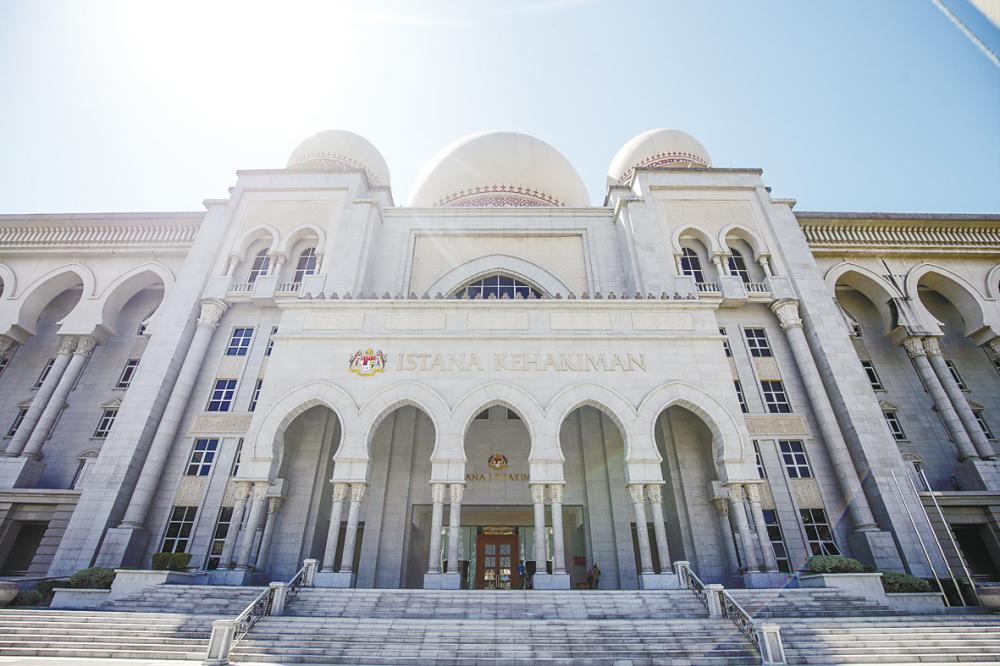PETALING JAYA: The G25 group of prominent former senior civil servants has lauded the initiative taken by Nik Elin Zurina Nik Abdul Rashid and her daughter, Tengku Yasmin Nastasha Tengku Abdul Rahman, who challenged the Kelantan government in their petition related to the power of the state legislature to enact or make provisions in the Syariah Criminal Code Enactment (I) 2019 (Enactment 2019).
Eight of the nine Federal Court judges who heard the matter ruled in favour of the petitioners. They were Chief Justice Tun Tengku Maimun Tuan Mat (pic), Court of Appeal President Tan Sri Abang Iskandar Abang Hashim, Chief Judge of Malaya Tan Sri Mohamad Zabidin Mohd Diah and Federal Court judges Tan Sri Nallini Pathmanathan, Datuk Mary Lim Thiam Suan, Datuk Harminder Singh Dhaliwal, Datuk Nordin Hassan and Datuk Abu Bakar Jais.
Chief Judge of Sabah and Sarawak Datuk Abdul Rahman Sebli dissented.
In a statement on Saturday, G25 also commended the Federal Court for declaring 16 provisions under Enactment 2019 null and void.
They are the Offence of destroying or defiling a place of worship (Section 11), Offence of sodomy (Section 14), Offence of sexual intercourse with a corpse (Section 16), Offence of sexual intercourse with a non-human (Section 17), Offence of sexual harassment (Section 31) and the Offence of possessing false documents, giving false evidence, information or statement (Section 34).
The others are the Offence of the use of intoxicating substances (Section 36), Offence of gambling (Section 37), Offences relating to scale, measurement and weight (Section 39), Offences relating to financial matters (Sections 40 and 41), Offence of abuse of the halal label (Section 42), Offences relating to solicitation of prostitution (Sections 43, 44, 45 and 48) and the Offence of incest (Section 47).
G25 said the Kelantan government should emulate the Negeri Sembilan government, which lost its case against Juzaili Khamis at the Court of Appeal in 2015.
In that case, the group said the court ruled Section 66 (prohibition on cross-dressing for male Muslims) of the Syariah Criminal (Negeri Sembilan) Enactment 1992 was unconstitutional as it contravened Federal Constitution provisions on fundamental liberties.
“The Negeri Sembilan government had the humility to abide by this Court of Appeal judgment. In 2019, it amended Section 66 accordingly to ensure the provision conformed with the Federal Constitution.”
They said the Court of Appeal also held that although Article 3(1) declared Islam as the religion of the federation, its practice in the country is governed by the provisions of the Constitution.
“Our forefathers, when drafting the Federal Constitution, intended that the Federation of Malaya (and later Malaysia) be a secular state.
“In the Supreme Court case of Che Omar Che Soh versus PP [1988] 1 LNS 150, the Supreme Court took the position that the framers of our Federal Constitution intended that the word ‘Islam’ in Article 3(1) be given a restrictive meaning.
“We applaud Nik Elin Zurina and her daughter Tengku Yasmin Nastasha for their courage and initiative in filing the petition.”
In a related matter, G25 also said it was gravely concerned over comments made by PAS secretary-general Takiyuddin Hassan when speaking to a large crowd outside the Palace of Justice, stating that the Federal Court judgment was a “dark day in history for Muslims (in the country)” and that the decision could also threaten syariah law.
“G25 views this as a highly provocative and dangerous statement, bordering on incitement. As a lawyer and former law minister in (former prime minister Tan Sri) Muhyiddin Yassin’s administration, he should have known better.
“He ought to have advised the crowd to respect the judgment of the Federal Court and to take heed of the ruling, instead of making the judgment a political issue.”
Tengku Maimun, who read the panel’s judgement on Friday, said the record must be set straight and that the present case, “contrary to erroneous and politically-fuelled suggestions, has absolutely nothing to do with undermining the religion of Islam”.
“The allegation that any decision of this court could destroy or even uphold Islamic law in this country is therefore not even remotely close to what the present petition entails.”
Enactment 2019 contained 68 sections, of which the petitioners had challenged 18.
On the petitioners’ case, Maimun said it related to the powers of the state legislature in Kelantan to enact or make some provisions in Enactment 2019 “according to the limits determined by the Federal Constitution, or vice versa”.
“In other words, the issue before us has nothing to do with the position of Islam or the syariah court in the country. Whether Islam or the syariah court is defended or not, is not the question in this case,” she said in delivering the panel’s judgment.
She added that the petitioners claim the provisions are invalid on grounds that the state legislature does not have the authority to make such provisions, which is a matter under the authority of Parliament.
“It is our majority decision that if the pith and substance of the law provision enacted by the state were items that were already within the Federal List, the state has no power to enact the said law. Therefore, we allow the petitioner’s application for a declaration that sections 11, 14, 16, 17, 31, 34, 36, 37(1)(b), 39, 40, 41, 42, 43, 44, 45, 47 and 48 of Enactment 2019 are null and void on grounds that the Kelantan State Legislature i.e. the respondent, made the law regarding matters over which it has no authority.”









